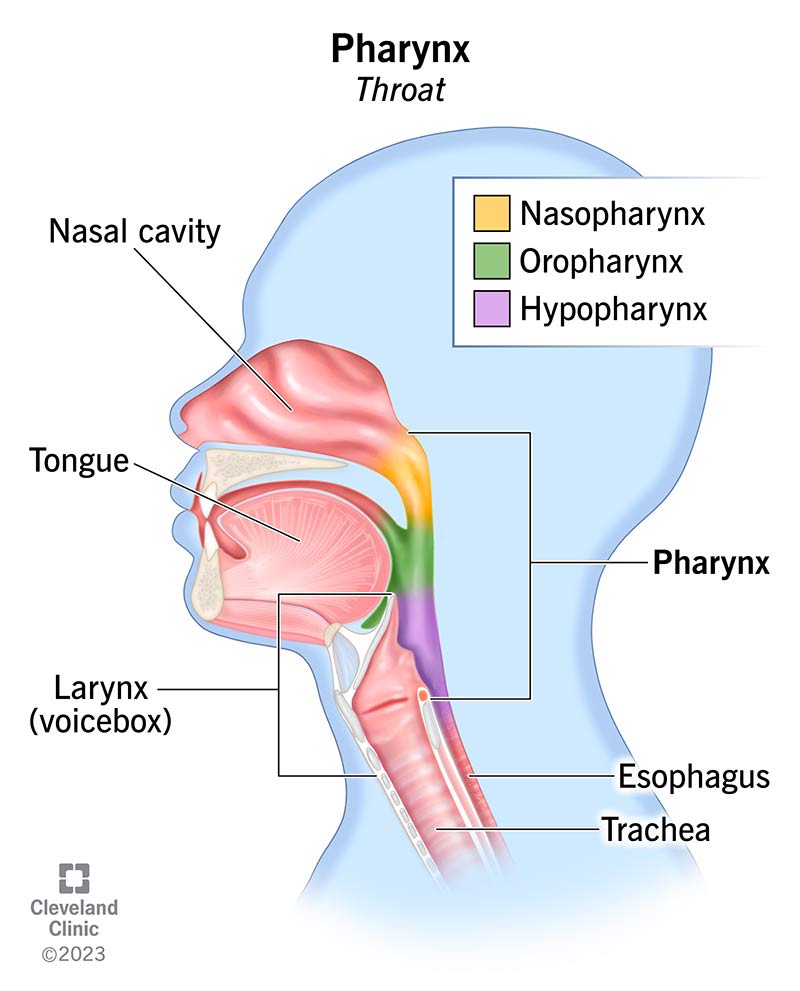The pharynx (throat) is a muscular tube in the middle of your neck. It helps you to breathe and digest food. Many medical issues can affect your pharynx, from a common cold to cancer. You can protect your pharynx by not smoking and avoiding infection.
Advertisement
Cleveland Clinic is a non-profit academic medical center. Advertising on our site helps support our mission. We do not endorse non-Cleveland Clinic products or services. Policy

Image content: This image is available to view online.
View image online (https://my.clevelandclinic.org/-/scassets/Images/org/health/articles/21869-pharynx)
Your pharynx (throat) is a multitasking muscular funnel that helps you breathe and directs food and liquid to your digestive system. You can keep your pharynx healthy by quitting smoking and protecting yourself from infections.
Advertisement
Cleveland Clinic is a non-profit academic medical center. Advertising on our site helps support our mission. We do not endorse non-Cleveland Clinic products or services. Policy
In general, it supports your respiratory and digestive systems. Specifically, your pharynx:
Your pharynx is in the middle of your neck. It sits below the lower part of your skull and just above your esophagus and larynx.
A pharynx has three parts:
Your pharynx is a tube that’s about 4 inches long. It’s mostly muscle, with some cartilage that makes up the back of your pharynx.
Everything from the common cold to throat cancer may affect your pharynx. The most common conditions include:
Advertisement
Many conditions may affect your pharynx, causing different symptoms. Some conditions are more serious than others. For example, having a sore throat doesn’t mean you have throat cancer. That said, you should talk to a healthcare provider if you have symptoms that don’t go away or keep coming back.
Common symptoms include:
Healthcare providers may do different kinds of tests, including:
Many things may affect your pharynx. You can reduce your risk of issues by:
Your digestive and respiratory systems depend on a healthy pharynx (throat). Your pharynx helps get air to your lungs and food and fluid to your stomach. You can keep your pharynx healthy by not smoking and taking steps to protect yourself from infections.
Advertisement

Sign up for our Health Essentials emails for expert guidance on nutrition, fitness, sleep, skin care and more.
Learn more about the Health Library and our editorial process.
Cleveland Clinic’s health articles are based on evidence-backed information and review by medical professionals to ensure accuracy, reliability and up-to-date clinical standards.
Cleveland Clinic’s health articles are based on evidence-backed information and review by medical professionals to ensure accuracy, reliability and up-to-date clinical standards.
Cleveland Clinic’s primary care providers offer lifelong medical care. From sinus infections and high blood pressure to preventive screening, we’re here for you.
